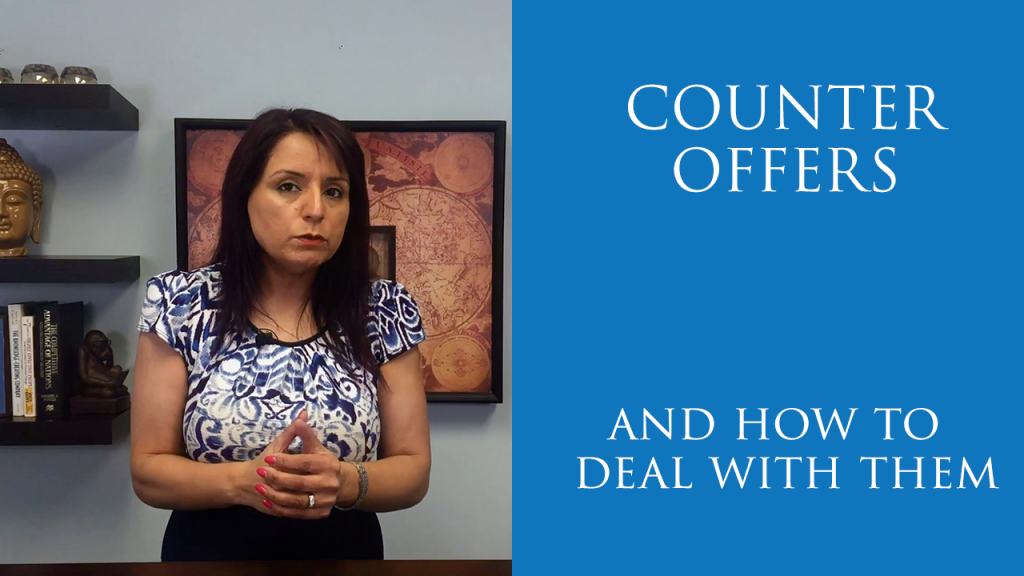In this video, Suky explains the best practices to deal with Counter Offers in the recruitment space.
Transcription
Hi I’m Suky from Professional Selection. Today I’d like to talk about counteroffers and what steps you can take to help reduce the number of
counteroffers that your candidates accept. Having spoken with my clients who in return are speaking with their clients, there’s definitely been an
increase in the number of offers that have been accepted. Has there been an increase in the number of offers being made? I don’t think so but I don’t know
that for sure so I’d be interested to hear some opinions on that. But certainly what I’d like to talk about over the next few minutes is what steps you can
take to help reduce the number of (counter)offers that your candidates are accepting. You’re never going to be able to eliminate them 100%, but certainly there are
steps you can take to help reduce. So what are the steps that you can take and when should you take those steps?
Well the first and arguably one of the most important steps is your initial interview. When you initially spoke with that candidate, did you really understand your candidate at that point? Some of the key things that you should have got out of that interview is what are their two or three motivators, reasons for leaving. Typically most people name three or four, and money will come into that, but money isn’t always the number one motivator.
So you’ve interviewed a candidate and it’s a great candidate. You’ve got all your information so what do you do now? Well in order for the next step to be
successful you must know your client and you must know the role so that’s not simply saying here’s a job title here’s your daily duties, no, it’s more than that. It’s the culture of it and at all times you need to make sure is this aligned with what your candidate told you at interview stage. So if that’s all good, great.
The process continues and your candidate’s had their first interview. Well what was the quality of that interview? It’s all going to be down to how well you prepped that candidate we won’t go into that on this video but it certainly if a number of people ask for it I will do one on that. So you’ve prepped your
candidate, they’ve been for the interviews, now you’ve got to debrief with your candidate as well as your client. Some of the things you must
understand from a candidate is: what did they like about the role, how did that fit in with what they were looking for. Something a lot of people are frightened of asking is what did they not like, what was it that they weren’t sure about or was there possibly a show stopper. It’s really critical that you pick this up at the earliest opportunity because adding that allows you to speak to the client to allow for any clarifications etc.
So the interview process continues, you’re at final interview stage now. Do not let a candidate go into final interview without you knowing what other
opportunities they’re interested in and looking at. In some cases I would suggest you do that at second stage but certainly last stage you must
know what other opportunities they’re looking at, how they compare, what is it about them that they like. Of course money will be a question you need to ask.
Do you really need to know exactly who they’re interviewing with? I’d argue you don’t. You need to know what that role is and why they’re still looking at
that role and how that role is going to compare with your clients position.
So the candidates has had their interview and now the client wants to offer them the role. You’ve negotiated all their three motivators. What happens now?
Now you’re at the stage where you’re going to go to the client and hopefully negotiate an offer but before you do that make sure you revisit your
candidates top two or three priorities and motivators for leaving. They may have changed depending on how long the interview process took. Life happens, so go back and confirm. So for example if it was working from home and they wanted $50,000 as a base salary you need to ensure that that is still the case.
You need to be asking questions like level of interest, and “if the client is to offer you working from home plus 50,000 base salary will you be accepting?”
A lot of candidates will tell you at that stage, or your gut will tell you that they’re not interested in this role or there’s there’s a showstopper
somewhere so clarify that. Most candidates will say “yes but I’d have to do XYZ” so that allows you to uncover another objection or motivator that you may
not necessarily have known initially. Or it may be recent – maybe the other job that they’re interviewing for has now come back with a little bit more money.
Get all the information at this stage again. Clarify – “Okay so if the client only offers you $45,000 but gives you the opportunity to work from home do
I decline the position on your behalf?” A lot of people will say no because they’ll want to think that over. Money isn’t always a number-one motivator.
So you now have exactly what your candidate is looking for and now it’s your job to go back to your client and tell them that. Negotiate the best
offer that you can for your candidate based on the information that they’ve given you. Again, a lot of that is going to depend on your relationship with the
client. You need to go to the client armed with factual information on why your candidates motivators have changed. Most clients will understand.
So you get that call from the candidate or even an email saying “Thank you ever so much for all the hard work you’ve done but I’m going to decline the offer.”
What do you do now? Well the first thing you do is you pick up the phone and you talk to your candidate. Most people, if you’ve built that relationship will tell you why they’ve declined that offer. Now, is the opportunity dead at that stage? Depends on what they’re saying their reason for declining the offer is and of course what your clients situation is as well, but I would certainly pick up the phone and ask them what was it that this client did not offer that you were looking for. Something had to be missed, so let them tell you what that is. Depending on what they come back with, you may be able to go back to your client and renegotiate, or you may not be able to. For example, if the biggest motivator was “I need to work from home” well their current employer
may have given them that opportunity to work from home and that was their motivator to leave. Everything else about their job is great!
What are you doing in that case? Well you wish them luck and you move on.
You will not be able to close every single deal but how you handle that candidate at that stage will determine when he’s looking again whether he comes back to you and of course if he’s going to recommend you as a recruiter to his friends, colleagues, and so forth. Now, if it is something that you feel you can go back to your client with, I would suggest you only go back to your client if you have a hundred percent commitment from that candidate. “If ABC happens I am signing and I will sign this afternoon.”
Hopefully, some of those tips will help you reduce the number of counter offers that you are experiencing. Certainly, it all boils down to your
relationship with a candidate, your relationship with a client, asking the right questions, and listening to your gut. Sometimes it’s not
what people say, it’s what they don’t say, and their actions.
I’d love to hear your thoughts and comments so please feel free to comment below. Thanks for your time.



